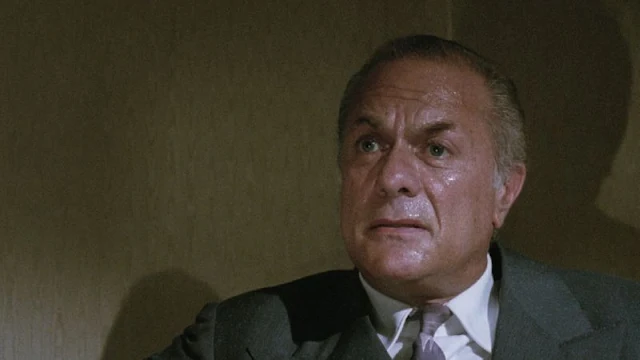 |
| Maggie Smith and Bob Hoskins in The Lonely Passion of Judith Hearne |
The Dublin of The Lonely Passion of Judith Hearne is a nest of vipers, full of people with stunted lives, blinkered vision, and downright meanness. The effect of this is to make Judith Hearne (Maggie Smith) look good by comparison, even though her life has been stunted and her vision is none too wide either. Perhaps she has had enough of the meanness exhibited by her late Aunt D'Arcy (Wendy Hiller) and by her spiky landlady (Marie Kean) and the other denizens of the boarding house into which she has recently moved, that she seems almost sunny and pleasant as if to defy them. She carries with her two icons of her past: a dour portrait of her aunt and a picture of the Sacred Heart of Jesus. These images represent her efforts to control her alcoholism through self-discipline and religion, but the truth is that both only serve to make the problem worse, exacerbating her guilt when she fails at the task. In late middle age, with a small annuity and a clump of savings, she has little to look forward to, so she grasps at anything that represents hope -- or at least a surcease from loneliness -- which manifests itself as her landlady's brother, James Madden (Bob Hoskins), a stubby middle-aged man with a neatly trimmed mustache who has recently returned from the United States. He's a phony, of course, a man full of schemes like opening a hamburger restaurant in Dublin that will never turn out, and whose American career in the New York hotel business amounted to being a doorman. He latches on to Judith because he thinks she has money stashed away. She gravitates to him because he represents a wider world than she has known in her years taking care of her aunt and earning a little money by giving piano lessons. It's a bleak and unforgiving tale, spiked with a little unsavory sex -- the rivalry between Madden and his nephew (Ian McNeice), a corpulent would-be poet who sponges off of his mother, for the attentions of the housemaid Mary (Rudi Davies), whom Madden rapes when she spurns him. No one comes off well in this movie, but I couldn't help being drawn in by the performances of Smith, Hoskins, Hiller, and the others, even when their characters were at their most unlikable.













